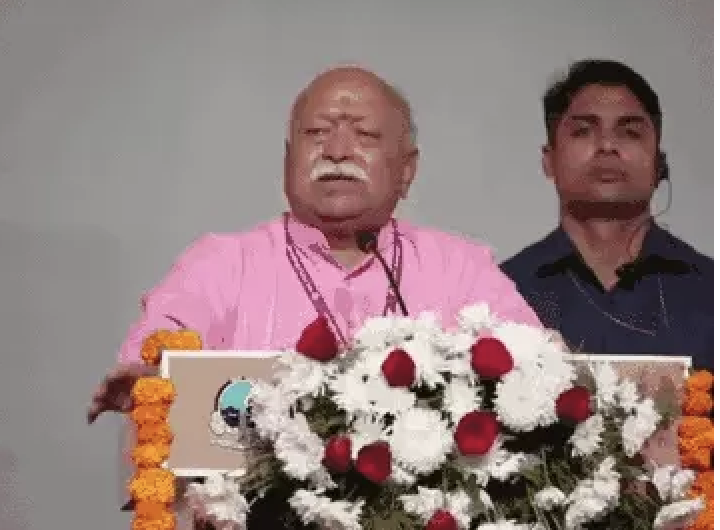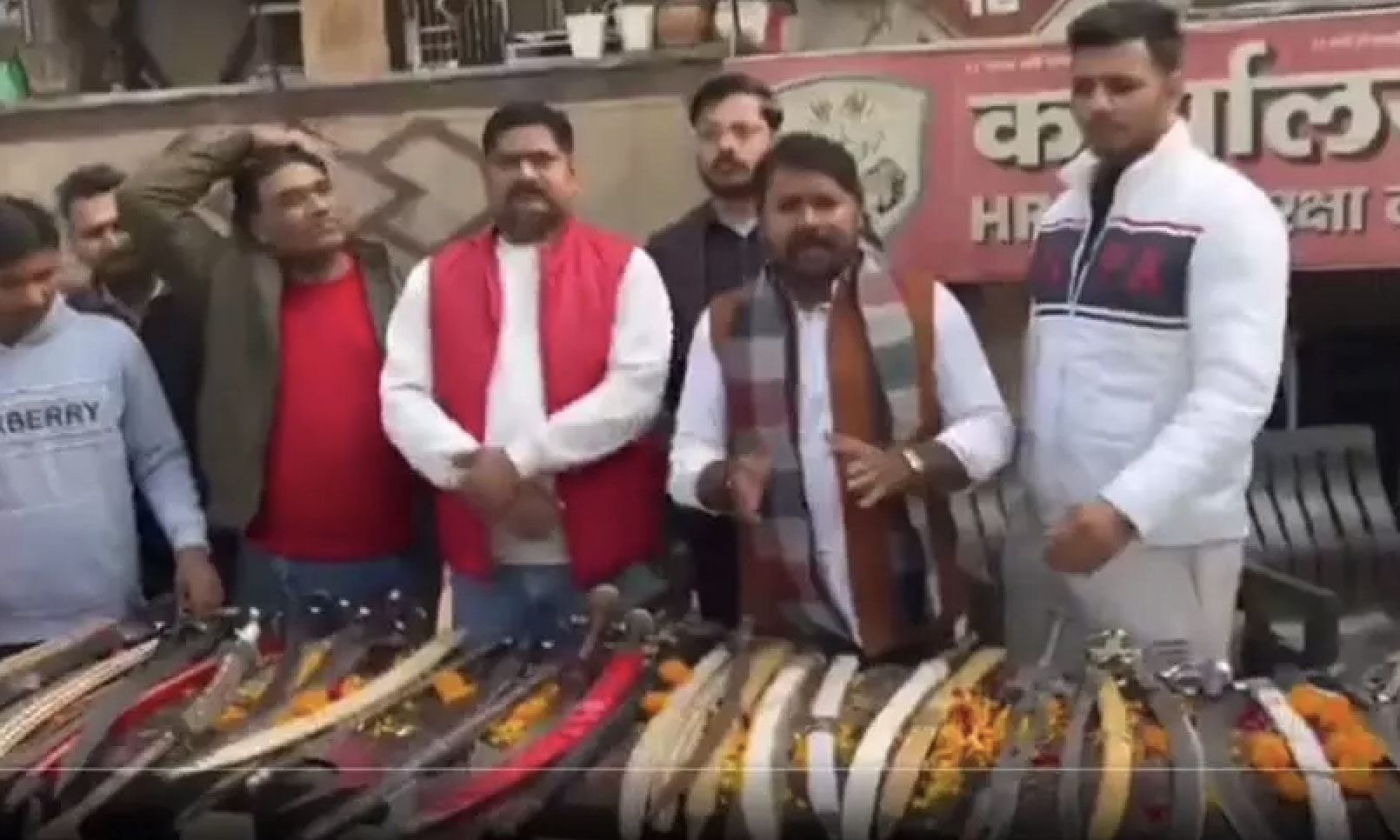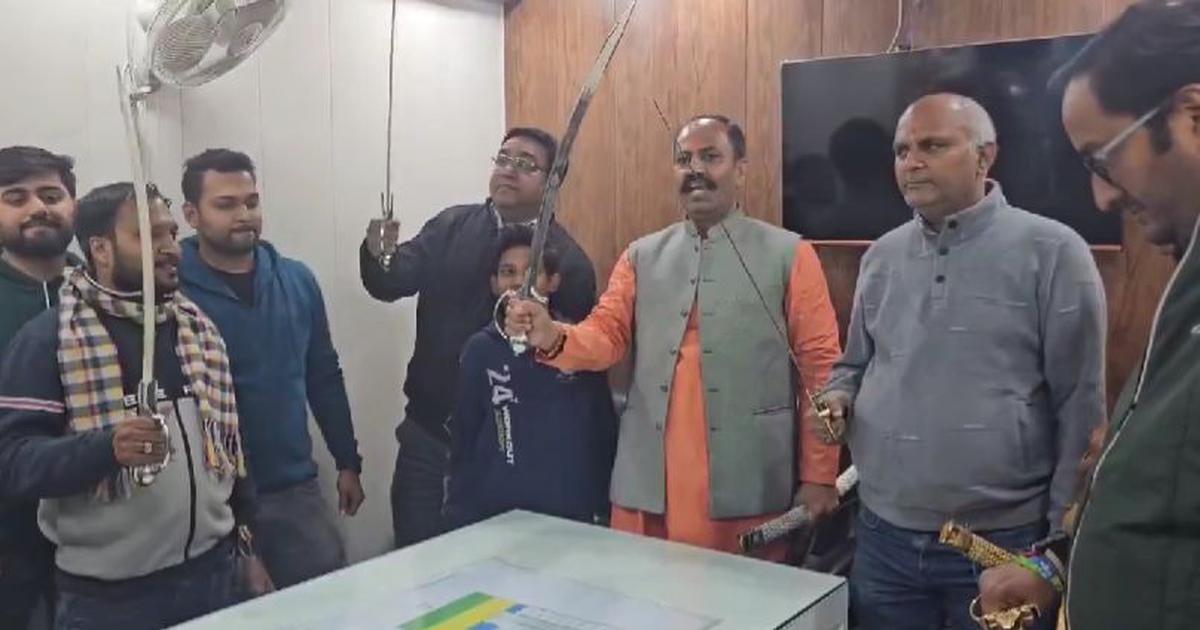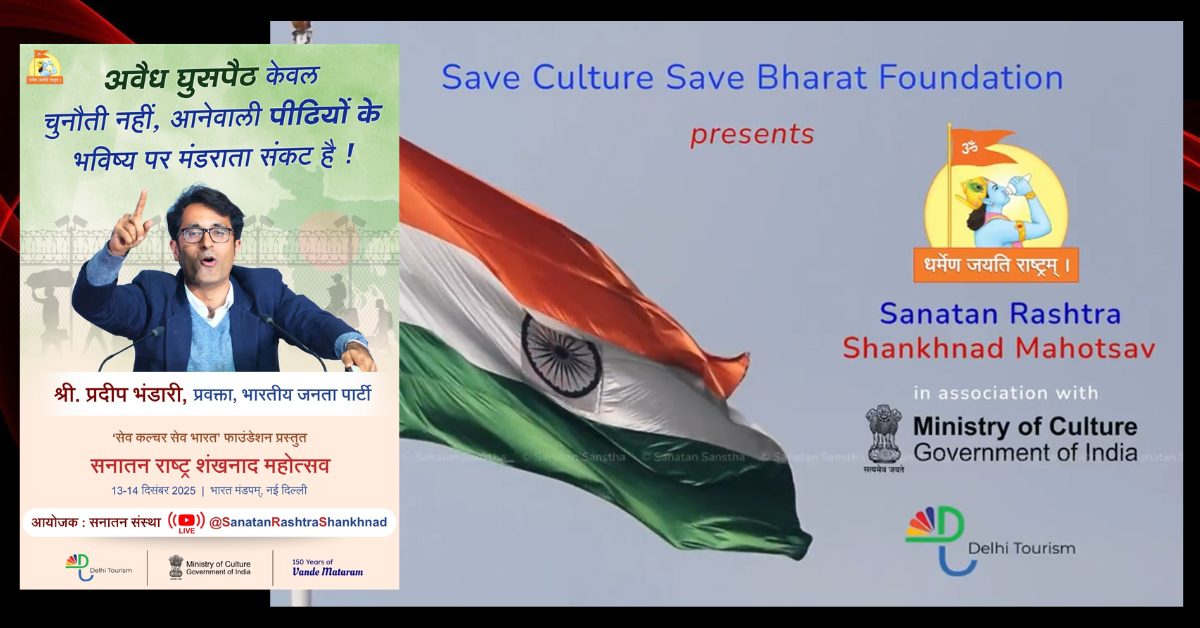For young Indians who believe in Hindutva or Hindu nationalism – an ideology championed by the political party of Prime Minister Narendra Modi – his government is simply not doing enough.
But these Indians have found a place to vent their frustrations directly to members of Modi’s ruling party, often with Islamophopic tropes and slurs: Clubhouse.
The new invitation-only audio social network is small but influential, often with celebrities and politicians making appearances in Clubhouse rooms. And the platform is rapidly growing, with one in five of its ten million active users coming from India.
VICE World News spent a week on the platform tuning into two dozen Indian right-wing rooms and witnessed how the new social media darling, which is difficult to moderate because of its audio nature, is increasingly weaponised with hate speech against minorities, often with members from Modi’s ruling party in attendance.
In a Clubhouse room, titled “Civil conversation on Anti Hindu Delhi riots”, Kapil Mishra, a leader from Modi’s ruling party who is accused of inciting anti-Muslim violence in Delhi in 2020, an allegation he denies, cornered a Muslim speaker and asked him to call a prominent Muslim activist, who is currently under arrest, a terrorist. A recording of the chat was uploaded on Reddit.
“Why don’t you call Umar Khalid a terrorist?,” Mishra asked a Muslim speaker, with over 800 people in attendance.
“There has been violence in Delhi, Mumbai, and Jammu, and still we don’t blame one ‘community’.” Mishra added, “You can’t expect more tolerance from us.”
Ever since Modi took office in 2014, things have not been easy for India’s 200 million Muslims. There has been a drastic increase in hate crimes against Muslims, strict beef bans have been put in place to cater to conservative Hindu beliefs, civil rights have been stripped in Kashmir, India’s only Muslim majority state, and there is a new citizenship law that critics call “anti-Muslim.”
Last week, VICE World News attended a Clubhouse room with 900 participants where there were calls for violence against minorities. Rajyavardhan Rathore, a parliamentarian from Rajasthan and a member of Modi’s ruling party, also attended.
In the room, a speaker named Aparna Mishra tried to rile the crowd with statistics of India’s shrinking Hindi population. “When 70 percent of us will die, then only those 30 percent will live with happiness. Even now if you don’t want to act, then live like this till the time comes when Hindus will be removed from India.”
The conversation continued for fifteen minutes, and then a speaker asked what were their options since, “we are told Hinduism restricts us from violence.” Nupur Sharma, the editor of Op-India, an ultra-right online website, then proposed a Sanskrit verse as a solution. She said, “Violence is not for violence’s sake, but to protect dharma, for that Hindus need to pick up arms.” She later added, “Aggression has been from the Islamic community, not Hindus. Coexistence is dependent on if the aggressor is willing to let go of the aggression.” The room’s mics flashed, a function participants can use to show they agree with the speaker. After Sharma stopped speaking, Rathore took the mic and said, “This is a very exciting discussion taking place and this is the change that will strengthen our future.”
After Rathore left the room, Alok Awasthi, another official aligned with Modi’s ruling party took the mic and said, “Hindutva is nationalism, nationalism is Hindutva.”
VICE World News was unable to reach Kapil, Rathore or Awasthi despite repeated attempts for comments about their Clubhouse conversations through party leaders via emails, texts, and phone calls. However, Gopal Krishna Agarwal, the national spokesperson of BJP, Modi’s ruling party, told VICE World News that their leaders are encouraged to interact on all social media platforms.
“BJP has been very active since 2012 on all social media platforms. We encourage our leaders – we always feel that left intellectuals have grabbed and controlled all of social media and they drive every narrative,” he said via phone.
Currently, the harsher and more bigoted the speakers, the bigger the crowd appears to be in Indian right-wing rooms on Clubhouse. These rooms run from early morning to night, as users with profile pictures of Hindutva saffron flags or mosque demolitions float from one room to the next.
Clubhouse rolled out their app on Android last month and has found India to be one of its fastest growing markets. “We are number one on the App Store in India,” Paul Davison, who co-founded the company with Rohan Seth, said in a press conference on June 7. “We want to make sure the creator is in control. We want Clubhouse to be a safe space for them.”
But that seems easier said than done.
In a Clubhouse room that VICE World News attended, titled, “Love Jihad & Jihadi Violence: 2 sides of the same coin!”, 500 participants discussed the Islamophobic myth that Muslim men lure Hindu women with an intention of converting them.
“I don’t know how many mosques are coming up, there is one every kilometer,” a young man told a crowd of nearly 500 people in a charged up voice. “This Jihad is an internal threat to our country that we need to finish—right now!”
The only Muslim man among the few dozen speakers in the room interrupted, “Though there is no democracy, but am I allowed to speak?” Angry voices overlapped as someone said, “If democracy had not been there, you wouldn’t be here right now, barking!” “Secularism and democracy have brought us into this place, otherwise you’d be in Pakistan.”
The slurs intensified. “You are our dog. Come here and I will show you democracy,”one person threatened. Others asked the moderators to remove the Muslim participant in the room. Their voices overlapped, “Throw them out.” “Throw them!” “Remove, remove him!” Before the Muslim participant was removed, he said, “This is mobocracy, not democracy.”
Hussain Haidry was a child when he first heard Islamophobic slurs like “Mulla, terrorist, Jihadi, Pakistani.” But the advent of hate speech on social media, since the early years of the last decade on Facebook, has normalised them.
“Now everybody’s free to say [those words] and they are not frowned upon,” the 35-year-old Muslim social commentator, told VICE World News. “People are empowered and emboldened to say it.”
Haidry often calls out casual Islamophobia while floating between rooms. “I could feel the heat when FB turned into a demon. So did Twitter. And WhatsApp. Now do we want to repeat the same mistakes in audio?,” Haidry asked.
The transition to interactive audio on social media sites has taken off pretty quickly. Discord, which has over 100 million users, moved an audio platform for gamers to an audio platform for everyone in July 2020. Twitter launched Spaces on May 3. Facebook and Spotify are coming up with their own versions soon.
In 2019, the UN Special Rapporteur on freedom of opinion and expression, David Kaye, submitted in a report that “online hate, with the speed and reach of its dissemination, can incite grave offline harm and nearly always aims to silence others” and called for human rights impact assessments at all stages of product development.
But little has changed. Haidry said, “For how long will they drive a truck at a mad speed, then break things and say we are learning?”
Davison, the co-founder, has said that Clubhouse’ company policies are living documents and “constantly evolving”. “The focus is on ensuring a team which has a deep expertise in social media platforms,” however, he added: “live audio is different.” Clubhouse and Davison didn’t respond to repeated attempts for comment sent by VICE World News.
Currently, Clubhouse gives the option to report a user. But there are other challenges: the company says it deletes its recording if a live session ends without an immediate user complaint report. Twitter keeps Spaces audio for 30 days, or longer if there is an incident.
While tech companies continue to “move fast and break things”, experts say the moderation techniques in live audio streaming lag behind.
“There needs to be a greater amount of foresight prior to product launches rather than an attempt to fix problems through a process of iteration,”Apar Gupta, the executive director at Internet Freedom Foundation told VICE World News.
“Historically, hate speech that led to social concern, in terms of impact on minorities, have come through oral speeches rather than written texts.” She added, “Clubhouse has a large amount of potential for inciting communal hatred that may lead to violence through the platform given it is an audio drop-in format.”
Follow Yashraj on Twitter.
This article first appeared on Vice.com






